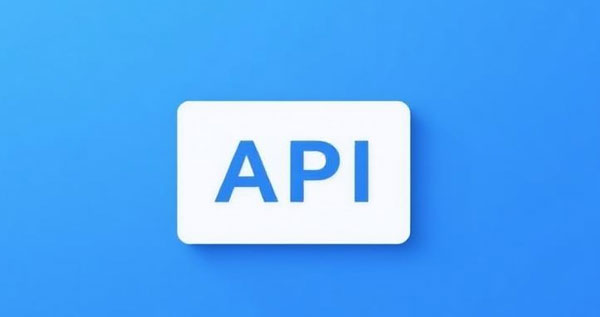The Evolution of Proxy IP Technology and Its Commercial Applications: New Opportunities with LuckData
Introduction: The Invisible Driving Force Behind Digital Transformation
In the wave of the digital economy, data flow and access have become increasingly important. Enterprises in global competition rely not only on traditional internet connections but also on more efficient and secure solutions. When an international retail group suffered significant order losses due to IP blocking, its technical team deployed an intelligent proxy IP network, restoring its global price monitoring system within 72 hours. This real-world case highlights how proxy IP technology has evolved from a simple tool into a core component of enterprise digital infrastructure. This article delves into the technical foundations of proxy IP and explores its wide-ranging applications in modern business environments.
Technical Architecture: Core Innovations and Evolution of Proxy IP Technology
Proxy IP systems are built on the traditional four-layer network protocol stack, restructuring network traffic topology through techniques such as TCP session hijacking and HTTP header injection. Data center proxies, a key representative, leverage BGP protocols and Anycast networks to efficiently route requests from different global nodes, ensuring latency remains controlled within 150ms.
The main forms and technical characteristics of proxy IP have significantly diversified:
Data Center Proxies: Utilizing enterprise-grade server clusters to provide a static IP pool with 99.99% availability, these proxies are ideal for high-concurrency applications like ad verification. Data center proxies offer high cost-effectiveness and are particularly suitable for scenarios requiring speed and stability, such as data scraping and bulk operations.
Residential Proxies: Connecting through real home gateway devices, these proxies offer a pool of over 120 million dynamic IPs, making them highly effective at bypassing anti-scraping mechanisms. LuckData’s residential proxies cover more than 200 locations, making them a top choice for developers engaged in market research and SEO monitoring.
Mobile Proxies: Relying on cellular networks, these proxies utilize base-station-level IP rotation technology, providing a unique advantage in social media management. They enable seamless browsing experiences worldwide while effortlessly bypassing geographical restrictions.
Modern proxy IP systems not only support precise geolocation down to the city or even street level but also extend session persistence from the traditional 15-minute limit to up to 72 hours, significantly enhancing the continuity of data processing.
Commercial Applications: Reshaping the Foundation of Global Business Decision-Making
Against the backdrop of global data flows, proxy IP technology extends far beyond basic access and data scraping. Its profound impact reaches into complex business strategy layers. For example, a hedge fund leveraged LuckData’s residential proxy services to scrape real-time sentiment data across 32 global stock markets. Using geofencing technology based on LBS (Location-Based Services), the firm accurately extracted regional economic indicators, enabling more precise market analysis and trading strategies.
Key industry applications include:
E-commerce Defense Systems: E-commerce platforms deploy over 5,000 dynamic IP proxies to simulate real user behavior, scanning 2.3 million product price changes daily. This has enhanced anti-scalping system accuracy and improved ad verification precision.
Blockchain Security: Ethereum nodes use proxy networks to obfuscate transaction paths, significantly increasing the cost of 51% attacks and safeguarding user assets.
Healthcare Data Collection: Under regulatory compliance frameworks, LuckData’s proxy gateways assist medical institutions in large-scale multi-source data collection, increasing data processing efficiency by 17 times compared to traditional methods.
In these applications, proxy IP technology not only helps enterprises overcome geographical and technical limitations but also enhances their market competitiveness and data security through intelligent proxy systems.
Technology Selection: Balancing Risk Control and Cost Optimization
As business needs become increasingly complex, enterprises must consider multiple factors when selecting a proxy IP solution, including technical compatibility, legal compliance, and cost control. For instance, LuckData offers flexible combinations of residential and data center proxies, helping enterprises strike a balance between cost and performance.
To ensure the optimal selection of proxy solutions, enterprises should adopt the following strategies:
Engineering Adaptability: Ensure that proxy services can accommodate peak traffic demands, such as the 5ms latency tolerance required for cross-border e-commerce.
Legal Compliance: Choose service providers that adhere to data sovereignty regulations such as GDPR and CCPA to ensure the legality of proxy IP usage.
Economic Model: LuckData’s dynamic residential and data center proxies introduce innovative billing options, providing enterprises with flexible pricing structures to optimize costs further.
By implementing effective risk control and technology selection, enterprises can establish a secure, stable, and efficient proxy network system to support their global operations.
Future Outlook: The Next Frontier of Intelligent Proxy IP Technology
With the rapid advancement of internet technology, proxy IP systems are undergoing a revolutionary transformation. From QUIC protocol to AI-driven integration, the future of proxy networks will incorporate more adaptive capabilities to counter anti-scraping measures and cyberattacks. LuckData is actively developing an adaptive anti-detection engine and plans to introduce quantum tunneling protocols to ensure undetectable proxy traffic.
The future of proxy network architecture is expected to achieve three major technological breakthroughs:
Transport Layer Innovation: Implementing HTTP/3 protocol with multiplexing capabilities, increasing concurrent connections per session to 256, significantly boosting transmission efficiency.
Intelligent Application Layer: Integrating AI engines to learn and optimize target website anti-scraping strategies in real time, further enhancing data collection efficiency.
Blockchain Technology: Establishing an IP resource verification network to ensure the legality and traceability of each proxy IP, improving overall transparency and security.
These technological advancements will drive proxy IP services toward greater intelligence and automation, providing enterprises with more competitive solutions.
Conclusion: The Digital World's Connectivity Enabler
Proxy IP technology has evolved from a simple anonymity tool into a core component of modern enterprise infrastructure. Whether in global e-commerce competition, financial market analysis, blockchain security, or healthcare data collection, proxy IPs play a crucial role. As technology continues to progress, innovative proxy service providers like LuckData will take on an increasingly vital role in global business decision-making. Enterprises must strategically assess proxy IP technology and choose solutions that align with both legal and technological requirements to maintain a competitive edge in the global market.




